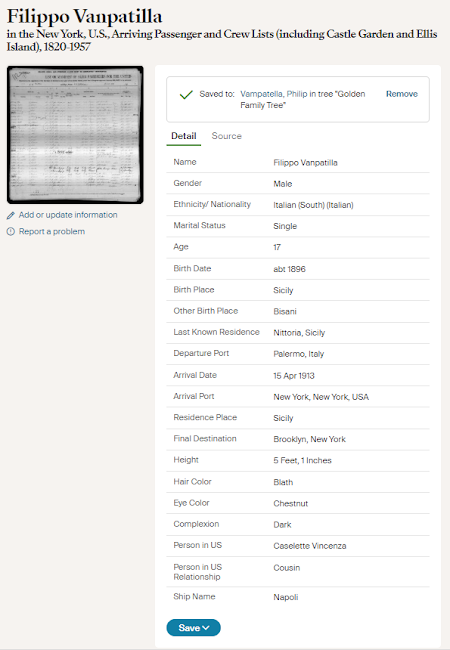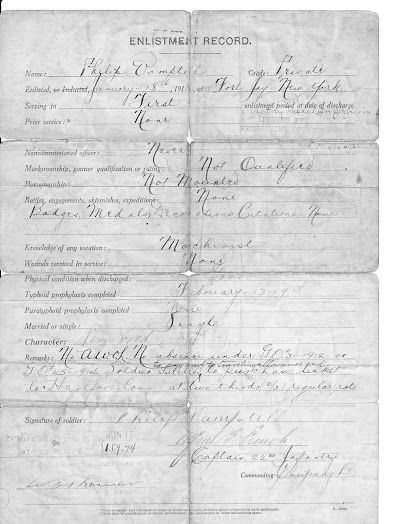Prompt: Homestead
When I got the prompt "homestead", my mind fluttered to the endless prairies of the American West, where brave souls carved lives out of rugged land. But homesteading, at its core, transcends those storied fields; it encompasses the essence of "home" itself. For me and my mother (and I will guess for others) that sanctuary rested at 145 Cedarhurst St in North Great River, New York - the cherished abode of my grandfather, Philip Vampatella.
Sundays at Grandpa's house was transformed into a family affair. Aunts, uncles and cousins flocked to see each other and grandpa. Sometimes, upon arrival, a game of pinochle was going on. Grandpa was known for his cheating tactics! Other times, grandpa was seated at his handcrafted bench at the table. Rings of smoke from his Chesterfields engulfed him. Next to him was a jelly glass filled with red Gallo wine. Katie, his second wife, would be at the stove making something that would make my father's mouth water.
The homestead was situated on 2 acres, its U-shaped driveway the setting for countless unaccompanied driving lessons - my brothers, cousins and I, navigating the loops with unbridled joy, our hearts racing as we cherished those fleeting moments of freedom. A sturdy oak tree, our playground, stood sentinel by the detached garage, while the faint silhouette of a parked car traced an indelible memory I never quite captured.
A miniature house, otherwise known as the "chicken coop" was where grandpa's sister, Mary lived. Unmarried and cared for by grandpa, Aunt Mary welcomed visitors with the warmth of bread and jelly in her modest home - an abode perhaps no larger than ten by twenty feet. She had a yappy little dog named Lammy. No one really liked him, but he was company for her.
Nestled beside her tiny dwelling was grandpa's workshop, a testament to his craftsmanship. Once his first home, it transformed into a hub of creativity as he lent his skilled hands to carpentry. Machinery hummed, sawdust danced in motes of light, and the rich scent of fresh-cut wood enveloped me like a nostalgic embrace. I would collect leftover scraps to create my own miniature towns in the backyard fueled by imagination.
So how did a young man from Vittoria, Sicily who arrived in the United States at the age of 15 with his father, Biagio and didn't speak a word of English come to make a homestead in Great River, Long Island?
In 1920, after completing his service in the army during WWI, Philip welcomed his father, Biagio back to the United States. A few years prior, Biagio was summoned back to Sicily for unclear reasons, but while he was there his wife had died. Biagio and his 3 daughters, Giovannina, Angelina and Maria arrived in the US. Giovannina and Angelina were quickly married off and Maria (Mary) remained unmarried and cooked and cleaned for her brother and father. The 3 Vampatella's were living in cheap, close quarts in Marion, Jersey City, New Jersey. Marion had a large concentration of Italians and warehouses where laborers could work.

The city's cobblestone streets echoed with the cacophony of traffic, a symphony of honking horns, shouting vendors, and the relentless clanking of trains. As a railway hub, Marion was a hive of activity, its air thick with the noxious blend of industrial fumes and the swampy stench that grandpa described as a "cocktail served to all and sundry." Yet, amidst this chaotic, sensory-overloading environment, Biagio and Philip found a way to thrive, working diligently and saving their hard-earned money.
One day in 1921, while perusing the newspaper, an ad caught the eye of Philip. It said something to the effect of:
Prime Long Island Real Estate!
Attention, aspiring landowners!!
Here’s
your golden opportunity to acquire a generous plot of ground on picturesque
Long Island!
Nestled amid lush vegetation and offering
a tranquil escape, this splendid piece of land is but a stone’s throw away from
the shimmering shores of the sea. Imagine the soothing sounds of the waves and
the gentle sea breeze right at your doorstep!
Located just a few hundred feet from the
charming center of town, you’ll enjoy the perfect harmony of serene countryside
living and convenient access to local amenities.
All this can be yours for the
astonishingly low price of just $250!
Don’t let this incredible opportunity slip through your fingers! First
come, first served. Act now and secure your slice of paradise!
Philip and Biagio took the train to Great River, Long Island and met with the agent from the "House and Home Company". From the train station they climbed into a Ford Model T taxi and headed north on a dusty dirt road. The driver left the 3 of them in this vast empty plot of land. Grandpa describes this place in Passeggiata:
"This place was all the ad had claimed. Vast expanses of scrub oak vied shoulder high against the taller jack pines hugging loftier elevations. There was no visible sign of human habitation; only a virgin sea of green split by a dusty road coming to a dead-end declivity. The road, main drag of the area, was Connetquot Avenue."
Philip was a little disappointed it wasn't a "stone's throw" away from the sea and complained to the agent. They walked about 2 miles more and there was a clear strip of land that was later to be called Cedarhurst St. The road was not paved. There was no power, no water, no telephone wires - there was nothing. It wasn't even close to a town that the ad had mentioned! Biagio and Philip discussed whether this is where they wanted to settle. No city, no noise, no foul-smelling air, no garbage. Biagio said, "..it was as God had made it, very nice."
Philip turned to the agent and said, "We'll take one acre" and gave him a deposit. Biagio now owned a piece of America!! But having land and building a home were two different things. A home was a lot more money and time and until they could build that home, Philip, Biagio and Mary moved away from the chaos of Marion, New Jersey and out to Long Island closer to their future.
By 1924, Biagio was diligently working alone to clear his land and dig a hole for his new home. Meanwhile, Philip was navigating the challenges of married life with his beloved Antoinette Rapuano. He made a point for her to visit her family in New Haven twice a month, all while managing their life on Long Island. After welcoming 2 children, Antoinette grew weary of the cramped quarters, the outhouses, and the burden of paying rent. A quiet woman who "asked for nothing" found the courage to request her hardworking husband to provide her with a proper home.
In 1927, Philip took a significant step towards realizing his dream by purchasing two acres of land on Cedarhurst Street for $800. with determination and resourcefulness, he set about building his family's home from the ground up. Philip salvaged wood from old stables and sheds belonging to the Belmont company, demonstrating his frugality and ingenuity. The construction process was a true community effort, with friends pitching in to help dig the foundation and pour cement.
Over the next three years, Philip worked tirelessly on the house, balancing his construction efforts with his growing family responsibilities. Even his wife joined in the labor, showcasing the couples' shared commitment to creating their home. Despite the challenges of raising 2 more children during this period, Philip persevered. His dedication paid off as the house gradually took shape, transforming from a mere plot of land into a warm, welcoming home for his expanding family.
Philip Vampatella's greatest achievement wasn't just building a home, but creating a family legacy filled with love, laughter, and enduring memories. His homestead on Cedarhurst Street will forever remain a symbol of one man's dream and the family that flourished because of it.
I'd like to acknowledge Perplexity in helping me craft this story. And Philip Vampatella for writing his life in Passaggiata.













